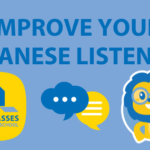What is the Best Way to Learn Japanese? Tips for Success
There Is No Royal Road to Learning: Best Way to Learn Japanese

“There is no royal road to learning” has been said about learning for a long time.
However, it is also true that it is difficult to make progress in a language if you study the wrong way.
Japanese is a very complex language and is considered to be one of the most difficult languages to learn, alongside other complex languages like Chinese and Arabic.
This article offers practical tips to help you stay motivated and make consistent progress in learning Japanese. We’ll explore daily practices to keep you on track and dish out those all-important Japanese study tips.
Best Way to Learn Japanese || Maintain Long-Term Motivation
Best Way to Learn Japanese || Daily Study Tips
Best Way to Learn Japanese || Know The Etymology
Best Way to Learn Japanese || FAQs
Best Way to Learn Japanese || Maintain Long-Term Motivation
First of all, it is important to clarify the purpose of studying Japanese.
When studying Japanese, setting clear goals can help keep you motivated and focused. Here are some potential objectives you can aim for:
🏆 Passing the JLPT (Japanese-Language Proficiency Test):
The JLPT has five levels, from N5 (basic) to N1 (advanced). Choosing a level to aim for gives you a structured path to follow and a tangible milestone to achieve.
🗣️Mastering Everyday Conversations:
Being able to communicate with native speakers in everyday situations, such as ordering food, asking for directions, or casual chatting, is a practical and rewarding goal.
📖 Reading Japanese Texts:
Start with simple materials like children’s books or manga, and work your way up to novels, newspapers, or academic articles. This goal enhances your vocabulary, kanji recognition, and comprehension skills.
📺 Watching Japanese Media Without Subtitles:
If you love anime, dramas, or movies, understanding them without relying on subtitles can be a fun and immersive goal.
🗾 Traveling to Japan:
Aim to use your Japanese skills to navigate your trip, interact with locals, and make the most of your experience in Japan.
💼 Professional Advancement:
If you’re learning Japanese for your career, focus on business Japanese, including writing emails, giving presentations, and understanding workplace etiquette.
By aligning your goals with your interests and needs, you’ll not only stay motivated but also find greater enjoyment in your Japanese language journey.
Of course, it is fine if you do not have a clear objective at the stage of initial interest.

However, from the perspective of continuing your studies, it is better to have a goal that is verbalized.
Whether or not your goal is to pass the Japanese Language Proficiency Test, taking a test online can help you establish your level.
If you have been studying for a long time, there may be times when you don’t realise how far you’ve progressed. At such times, it’s nice to have a test that gives you a clear score and place to work from.
Of course, it is possible to be disappointed when you do not score as well as you would like, but in such cases, you will have a clear idea of what to do because you will be able to redo the questions you got wrong.
Japanese people tend to place a high value on such examinations, so the experience of having passed a challenging examination is highly valued not only when seeking employment, but also in everyday conversation.

How To Learn Kanji // 7 Tips for Success 💪
How to learn Kanji? Generally, you’ll need to learn about 1,000-2,000 Chinese characters in Japanese. Here’s the best way to go about learning them.
Best Way to Learn Japanese || Daily Study Tips

Persistence is Power.
When it comes to learning a language, it is very important to build up the language daily, even if only for a short time a day, rather than studying it all at once.
Also, reviewing the same words or phrases over and over again will promote retention.
For example, if you have a 50-page text, you will have better retention if you read through all 50 pages every day, rather than 10 pages a day for 5 days. It will be easier to remember if you take it easy and read through the whole book many times.
If you find a video or song that you like, you should listen to it over and over again and memorize the phrases used.
👉 Even if you do not understand the meaning of individual words or expressions, you should first memorize them as phrases. As your study progresses, your understanding of the vocabulary and grammatical items related to the phrase will quickly deepen.
We created a JLPT N5 Vocabulary Quiz with 380+ words so you can review and test your knowledge! Ready to try it out?
Is N5 too easy for you? Have a try at the JLPT N4 Level!
You should not only study Japanese quietly by yourself, but you should also have opportunities to actually use Japanese. Especially if you talk with native speakers, you will be able to learn more efficiently by having them tell you about mistakes that you may not have noticed when you were studying on your own.
You can also ask a native speaker to listen to your recited phrases or to check a manuscript you want to memorize by yourself.
Nowadays, there are many online services that allow you to speak with native speakers from the comfort of your own home, and with LTL’s FlexiClasses, you can schedule online classes with a teacher 24 hours a day, 7 days a week, so even busy people can find time to talk with native speakers!

8 Resources to Improve Japanese Listening Skills
Want to improve your Japanese listening skills? Not where to look for new resources? This complete guide has you covered with 8 of the best resources.
Best Way to Learn Japanese || Know The Etymology
When learning words and kanji, it is inefficient to try to memorize them blindly.
Instead, it’s important to know that each part of a kanji character also carries some kind of meaning.
For example, the left side of the character 持 も mo; means hand, and even if you do not know the kanji for 握 にぎ nigi; you can tell from the left side that this character has something to do with the hand. 持 means to have something, and 握 means to grip.
Even if a kanji is complex, when broken down into its parts, it is usually made up of a combination of more simple components. By memorizing those components and their meaning, you will be able to guess the meaning of even kanji that you see for the first time.
This is one of the methods that the Japanese take when studying kanji. The Japanese generally learn more than 2,000 kanji by the age of 15, but this does not mean that they have 2,000 independent pieces of knowledge. Knowing some kanji makes it easier to understand others, and the more knowledge one has, the easier it becomes to learn new knowledge.
This method of learning kanji by breaking them down is very difficult to understand in a textbook. Also, the kanji you are interested in may not always be explained in the content available online. In such cases, we encourage you to ask a native speaker.
Most Japanese people study the elements that make up kanji in school, so they almost always have some knowledge of what elements have what meaning when it comes to basic kanji.
In this day and age, if you just want to study words, expressions, and kanji, you can study on your own by searching the Internet or watching video content.
However, if you want to go one step further and learn about the origins and components of kanji and words, it is essential to have a native speaker actually write the kanji for you and show you, or to ask questions about the characters and expressions you are interested in.
Do you have any other tips to learn Japanese? Share with us here!
Best Way to Learn Japanese || FAQs
What are goals can I aim for when studying Japanese?
When studying Japanese, setting clear goals can help keep you motivated and focused. Those goals might include passing the JLPT (Japanese-Language Proficiency Test), mastering daily conversations, enjoying Japanese media, being able to apply for jobs that require Japanese or simply to take a vacation to Japan!
How can I learn Japanese if I don’t have the opportunity to speak it?
You can still learn Japanese by focusing on listening, reading, and writing skills through resources like language apps, online courses, and media such as anime, podcasts, or books. To practice speaking, consider using platforms like FlexiClasses to connect with native speakers online.
How many kanji do I need to study?
Generally speaking, knowing about 2,000 kanji is considered sufficient for daily use in Japan.
How can I learn Kanji characters efficiently?
Kanji consists of several components. Knowing the meaning of each of these components makes it easier to guess and remember the meaning of unfamiliar kanji.
Want More From LTL?
WANT TO LEARN JAPANESE? Check out our online Japanese courses here.
We offer a 7-day free trial to all new students where you can study 24/7.
What about studying Japanese in Japan instead? We’ve got your back. Our Japanese courses in Tokyo can either be taken in small groups of no more than 5 students or individually for a more tailored experience.
We even offer incredible homestay experiences in Tokyo as well.
Come and be a part of this amazing community.








